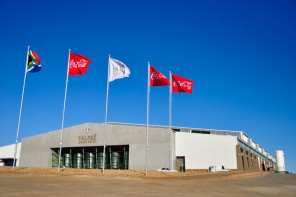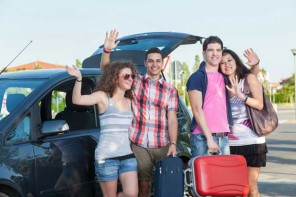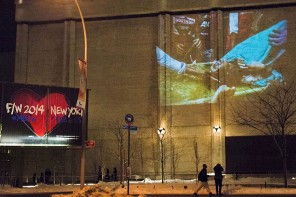South Africa’s sunshine is a major attraction for tourists to Cape Town, and now, producing energy from sun could become an equal draw card, as environmentally responsible tourism seeks to do more than just put up signs urging guests to save water.
Aquila Safari – tucked away near the town of Touws River in the Western Cape, is now powered by the African Sun.
Owner Searl Derman explains that Aquila, which is one of the busiest safari spots in Africa, now it generates all its daytime electricity needs from the concentrated photovoltaic (PV) solar pilot plant on the property.
The installation, built by German company Concentrix – which hopes to build a larger 50MW solar plant in the area, is situated along the main road, and close to the main lodgings at Aquila.
It lies within the Aquila Rehabilitation & Conservation Centre, a one-hectare sanctuary where canned lions that have been rescued are housed. A rescued cheetah, now part of a breeding programme, also adds to the security team.
“With abundant sunshine in the beautiful Cape Karoo, Aquila is a perfect site for using solar energy. I am proud to have initiated what I believe to be the ultimate responsible usage of land as a platform for sustainable social upliftment, conservation and renewable energy projects, in one of South Africa’s most impoverished towns, and during a national power crisis,” aays Derman of the latest addition to the property.
The carbon footprint of a holiday is likely to become a determining factor for eco-savvy travellers, when choosing a vacation destination. Particularly for foreign tourists making the emission-heavy long-haul flight to Cape Town.
Carbon offsetting of the venue will play an important role, and in South Africa with fossil fuel accounting for over 90% of power generation, electricity is a good place to start with this. Derman believes that renewable energy is growing in popularity, and that the solar plant could become a tourist attraction in itself.
Technology
Derman has a point, and it’s hard not to let the inner techie geek in you get carried away when visiting this project. The pilot solar project generates about 60 kilowatts of power, and is made up of ten trackers, which tilt to follow the sun throughout the day. This ensures that the modules are exposed to direct sunlight during all the daylight hours. This makes the modules more efficient than regular stationary PV solar panels that one would have on your roof for example.
Each tracker in the installation is made up of a number of modules, which are also made up of smaller components, which look like a silver chip, about 4cm by 4cm with a smaller PV chip in the centre. The sunlight is focused into the small PV chip in the centre, which generates the electricity.
Using a smaller central PV chip is also more efficient on resources, because less silicone is used to produce the standard module made entirely of PV material. Concentrix says that this type of technology is well suited to the area, which straddles the Cape and the Karoo, and is relatively dry with a lot of warm sunshine. The installation also uses very little water, so along with not generating any harmful greenhouse gas emissions, the fuel source is free, which is just another bonus when compared with coal-fired power.
The major stumbling block for solar energy is the price. When compared with what South Africans pay for electricity today, and even when compared with other renewable energy options like wind, concentrated PV is very expensive. In fact, the developers of this project remain mum on how much they spent to develop it.
Skills
So while Aquila gets clean, free energy from the sun in the day (the game reserve is still connected to the Eskom grid for evening power needs), one of the broader objectives of the project, is to develop solar skills in the region.
Concentrix, Aquila, and the University of Cape Town will be working together to figure out how best to use the installation to educate people – from student engineers to school children in the area – about solar power.
Between Aquila and Concentrix there will also be a skills development programme to train over 200 local residents of Touws River in security, construction and maintenance of the solar plants.
Building coal fired power stations, is something that South Africa has been training people to do for many years. However, making electricity from the resource that shines on us from above, is a relatively new concept.
The skills development side of the project is something that fits in with the overall ethos at Aquila. The town of Touws River, since the railway facilities were shut down in the 1980’s, is a town of about 9 000 people, with an unemployment rate of about 97%.
The game reserve has been a major employer in the area, and has developed a number of local skills in the eco-tourism field. Derman speaks of the Aquila lodge and the Touws River community as if they are one, and explains that the game reserve is involved in numerous projects with the community.
There are soup kitchens, blanket drives and litter for food swaps, Aquila sponsors a teacher at the local school, and by cleaning the town, the recycled litter is used to pay school teachers.
Aquila sponsors the children in the community to visit the game reserve and experience the big five. Derman also supports the old age home and sponsors the town’s rugby, cricket and soccer teams.
This ensures that Aquila is linked to the community and not just a playground for high-paying tourists.
Although the Western Cape is not notorious for its game viewing opportunities, Aquila has re-introduced the big five into the area, allowing visitors to Cape Town the opportunity to experience South Africa’s majestic animals without having to trek north.
The game reserve is accessible in just under two hours from Cape Town by driving along the N1 past Paarl, and Worcester through the fascinating Du Toitskloof mountain range.
The liveeco team






